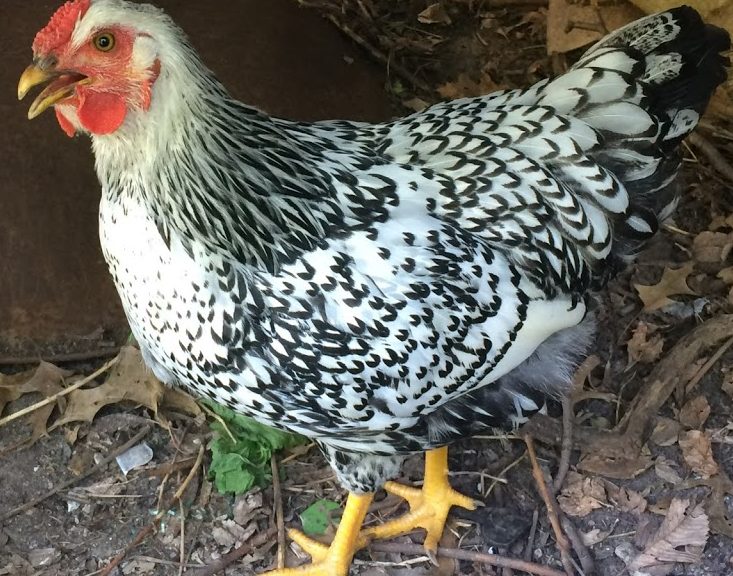
Helping Your Chickens Beat the Heat
Chickens are generally very resilient when it comes to weather. They can handle low temperatures well and don’t seem to mind the rain, wind, or even snow. However, heat is a different story. Chickens do not have sweat glands, which means they are not able to self-cool very well. So we need to be extra careful with our feathered friends when temperatures rise! Here are some tips for helping your chickens beat the heat.
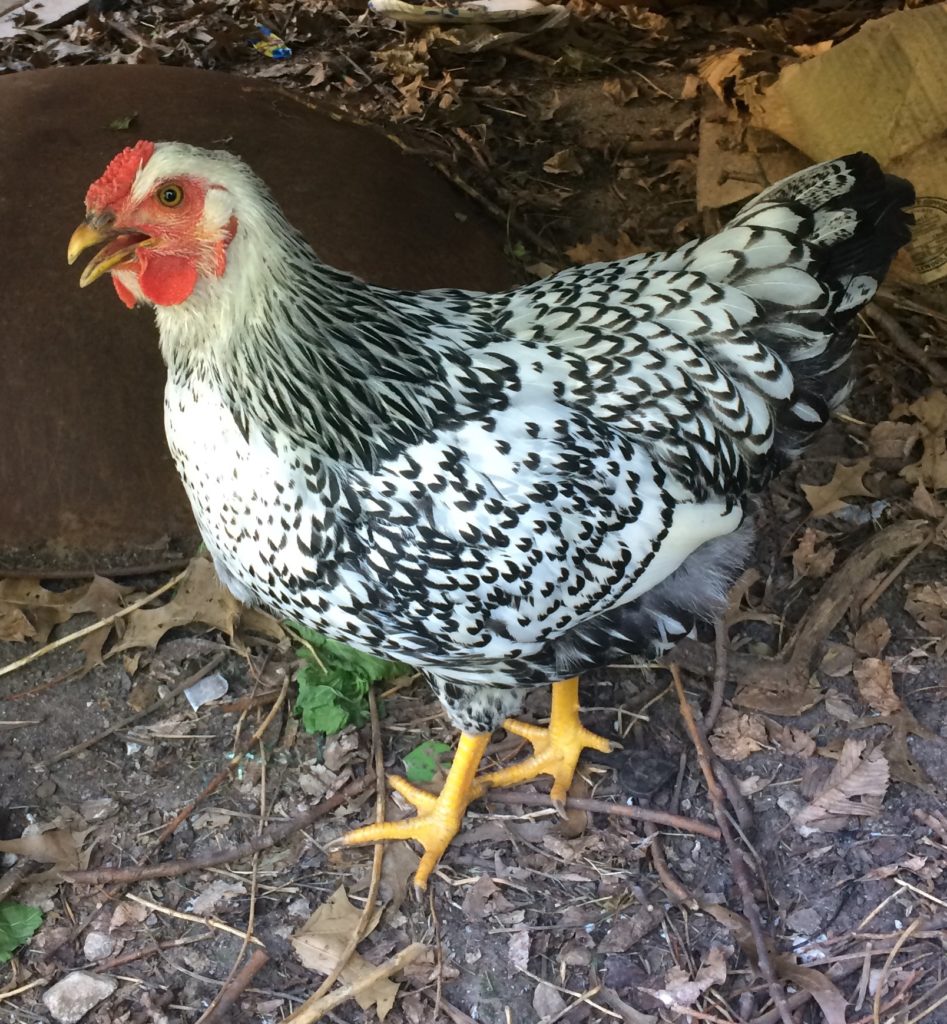
It’s June here in Nebraska, which means temperatures up to 100 degrees. Other places around the country have it even worse – Arizona had forecasts up to 120 this week! As miserable as it might feel for us, it can be downright dangerous for our chickens, as they can overheat fairly easily. Know the danger signs, and be proactive in keeping them safe and cool.
Signs of Overheating in Chickens
If your chickens display any of the following behaviors, they may be overheating:
- Spreading their wings out from their body
- Panting
- Acting lethargic or confused
- Combs and wattles looking pale and dry
If your chickens act disoriented or sleepy during the day, this is an emergency situation! Dip them into a tub of cool water immediately, up to their necks. You don’t want the water to be too cold, as this will put them into shock, but cool enough to lower their temperature.
My kids have a small wading pool in our backyard, and when I have noticed my chickens panting, I will grab them and set them in the pool. I did not submerge them because they weren’t acting lethargic, just let them wade enough to get their legs fully in the water and their bellies a little wet. I expected all kinds of squawking and protesting when I first did this, but they actually didn’t seem to mind. They allowed me to set them in, looked around for a moment or two, and then calmly stepped back out. The panting stopped immediately after putting them in the pool, so I know it helped to cool them down.
Watery poop is actually NOT a cause for alarm. This is very normal for chickens in hot weather, because they are drinking much more than usual, and because their body actually passes water through as a method of cooling them from the inside out. Just watch your step!
Preventing Overheating in Chickens
Water
Of course the best way to deal with overheating is to avoid it in the first place, and the best way to do that is to keep your chickens hydrated. Keep plenty of fresh, cool water out where your chickens can access it easily. I currently have three “water stations” placed around the backyard, in places where my chickens like to hang out. When it’s particularly hot out, I will go out and drop ice cubes into the water several times a day to keep it cool. (Chickens, like other livestock, prefer their water cool and will even refuse to drink if it’s too warm.)
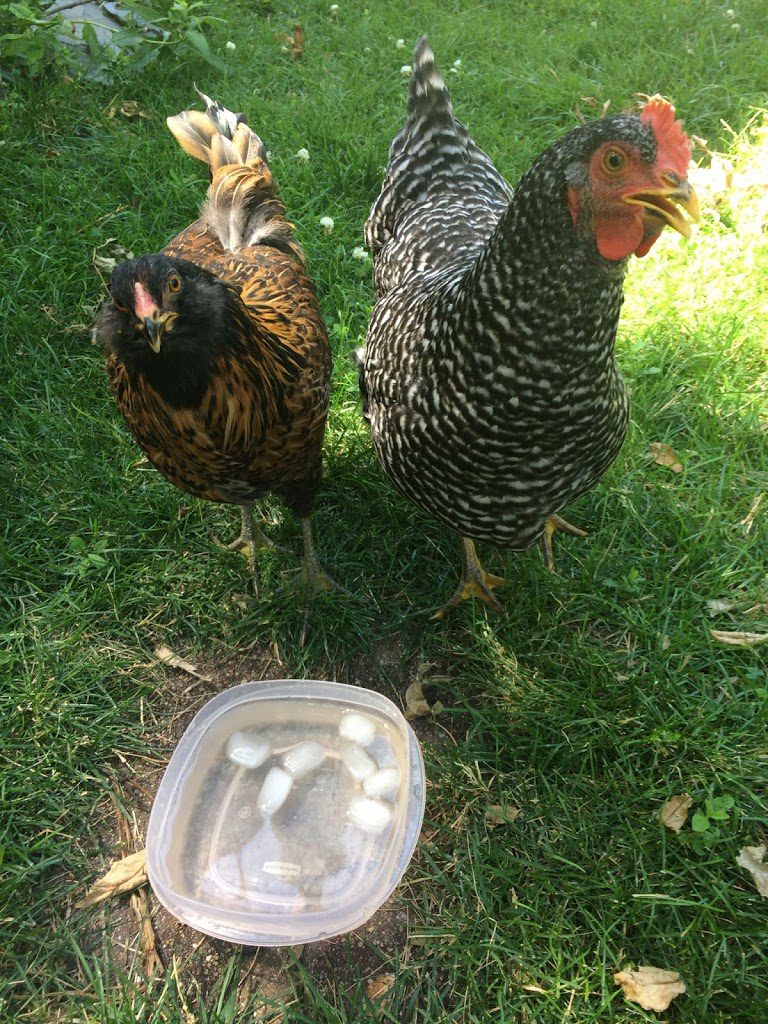
Keeping the air cool
My chickens have found their favorite place to be during the hot afternoons, and that is under our large bushes on the north side of the house. This area is naturally shaded during the day, so it’s a perfect hiding spot. I keep cool water there for them to drink, and once or twice a day I will use the ‘mist’ setting on my hose attachment to cool the air in that area down (and the chickens too, if they’re unfortunate enough to be there). You can actually purchase outdoor misters that attach to your hose and stay on all day, like a very light sprinkler, to keep chickens and the air cool. This would be especially important if your chickens are stuck in their run all day, without the chance to find cooler places to hide, or if you’re in an area that is exceedingly hot or experiencing a heatwave (I’m looking at you, Arizona).
Providing shade
Try to keep your chickens’ run and coop shaded, if they are not able to free range. This can be as simple (and as tacky! Hello neighbors!) as putting a tarp over the run. If you wanted to be fancier than that, you could grow vines on the sides and top of your coop. Pole green beans and squash might get tall enough to work, too, and then you’d have the bonus of your own fresh vegetables! If you haven’t built a coop yet, plan now for a shady area to put it. Check your intended space in the morning, evening, and especially afternoon to see how the sun will hit it.
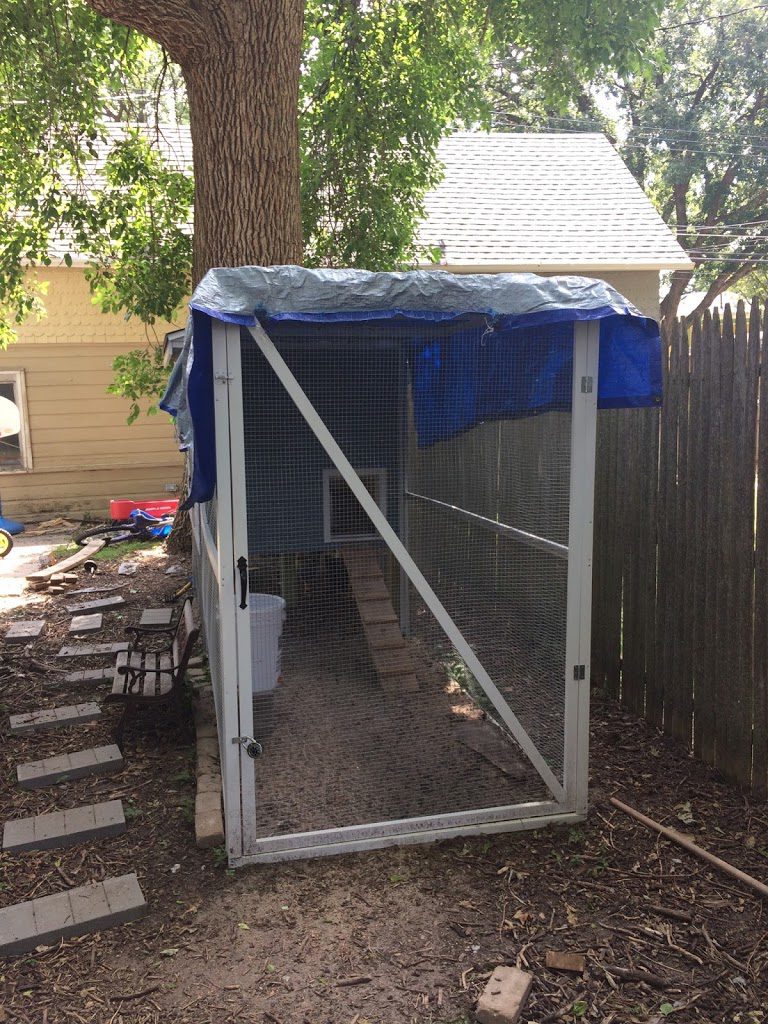
Ventilation
Make sure your coop is well-ventilated during these hot days. Open all doors and even the nest boxes if you need to. Your coop should have plenty of opportunity for air flow – vents, windows made of hardware cloth, or eaves covered only in hardware cloth. Remember that hardware cloth, not chicken wire, allows air to flow but will keep even the smallest predators out. If your coop smells like ammonia, you need a lot more ventilation ASAP! Keep a thermometer in the coop and keep an eye on it. I have been pleasantly surprised to see that my coop stays around 85 degrees inside, even when the outside temperature is close to 100.
Frozen or chilled treats
In general, chickens will eat less when it’s hot out, and that’s normal. Their body has to heat up to digest food, so naturally they lower their intake. This means that the food they ARE getting should be very nutritious and suited for their current needs. (My chicks will be 18 weeks old very soon. I will then move them over to Layer feed plus oyster shell, to give them the protein and calcium they need.) However, a cold treat once or twice a day will help keep them cool – just don’t give them enough to ruin their appetite for the healthier stuff. Cold watermelons or watermelon rinds, frozen corn and other small vegetables, and chilled fruit (but not citrus or avocado) are all good options.
Since my chickens LOVE their noodles, I may have cheated a little on this list and given them frozen egg noodles earlier this week. They loved it, and the egg in the noodles gave them extra protein. Yes, it sounds cannibalistic, but chickens love eggs. I haven’t tried it yet, but if you’re going to feed eggs to your poultry you should always cook them first. You don’t want them to develop a taste for raw eggs! Chickens especially seem to like hard boiled and scrambled eggs. If you hard boil be sure to chop them up – again, so they don’t recognize it as an egg and develop a craving that will lead to egg-pecking later on.
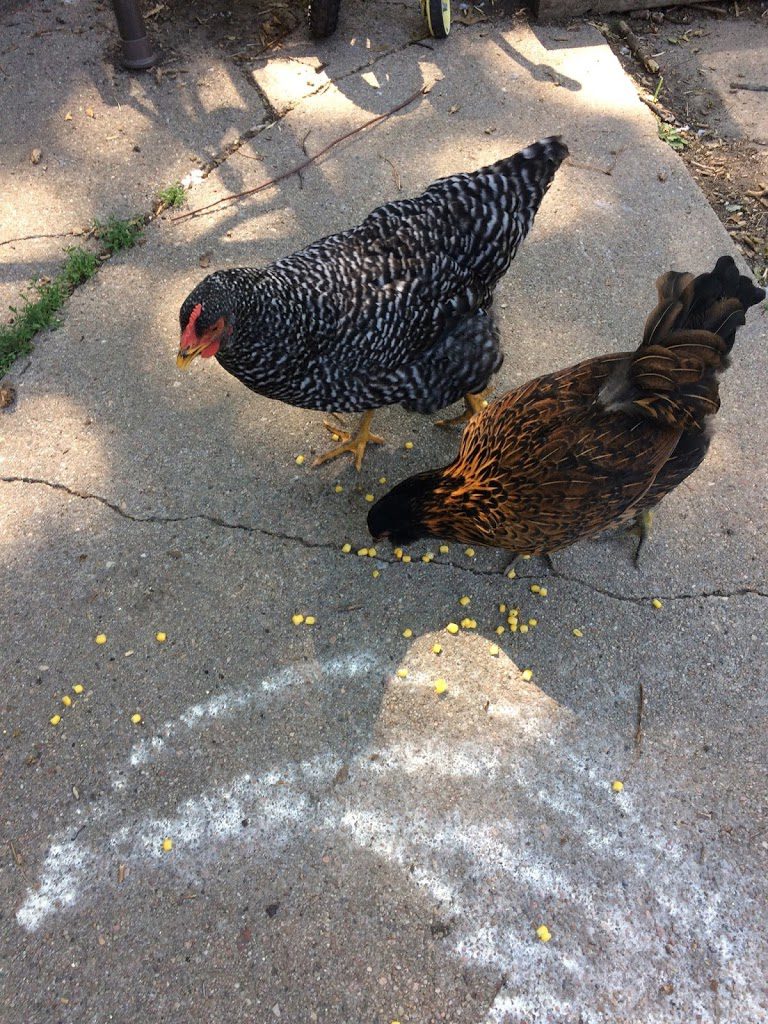
Chickens may tolerate heat well naturally, but there are plenty of ways you can keep them safe and help them beat the heat, even in extreme temperatures!